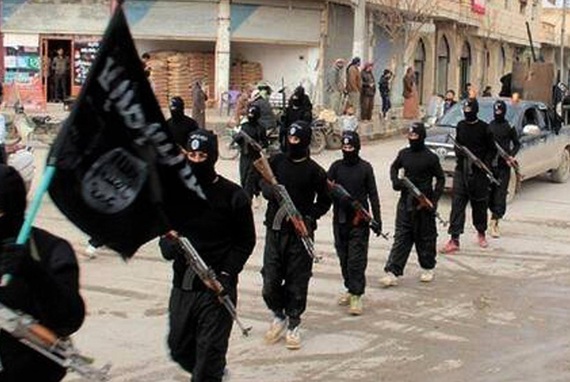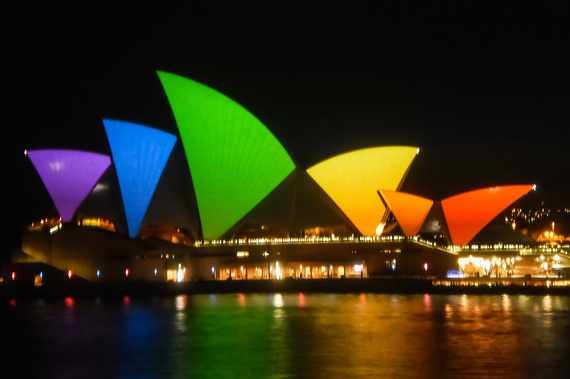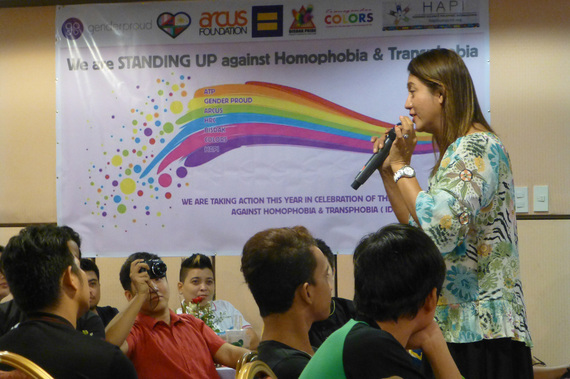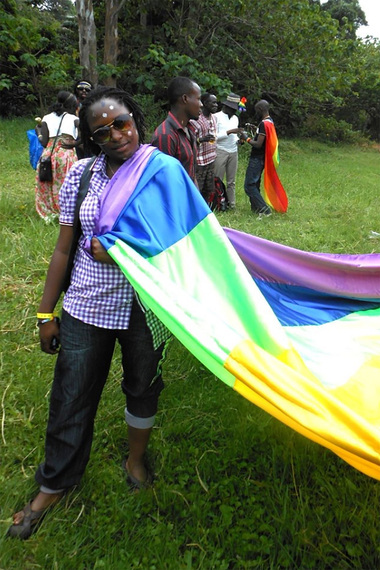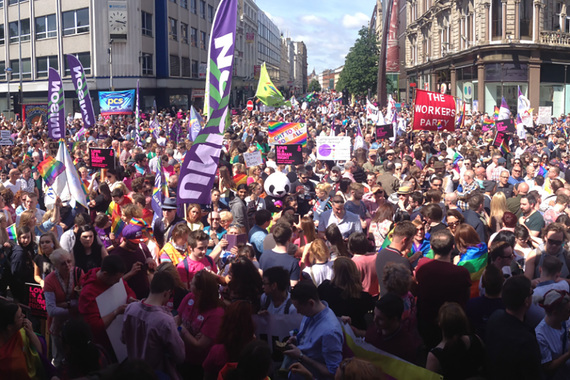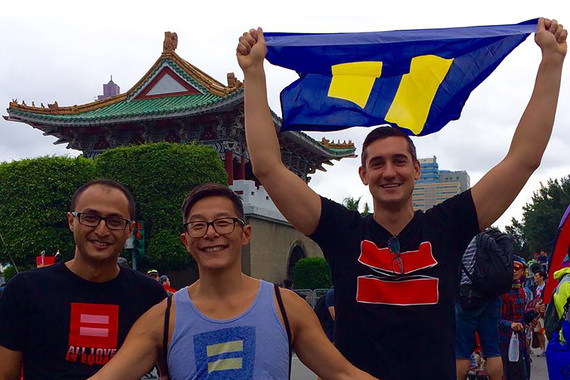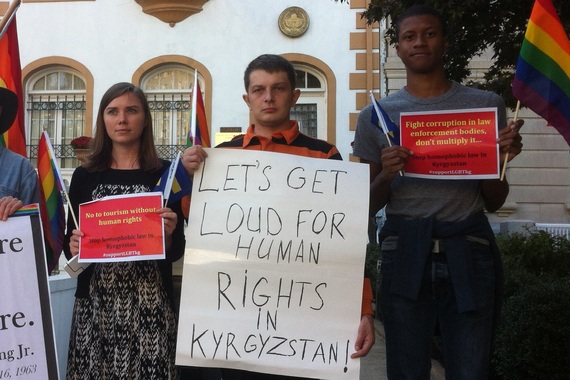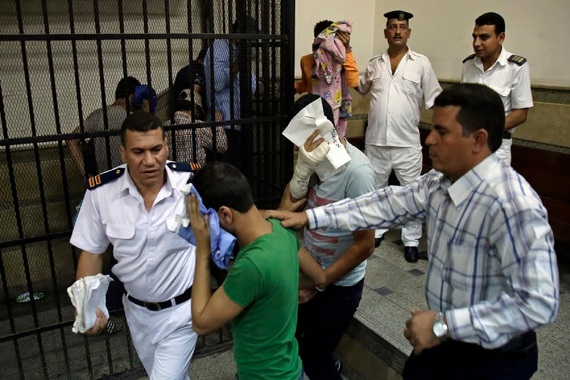As 2016 begins, the Human Rights Campaign, the United States' largest LGBT civil rights organization, previews the battles in the year to come in the fight for global equality. While some countries saw major progress in 2015, such as the inclusion of LGBT protections in Nepal's new constitution and the arrival of marriage equality in Ireland and the United States, the fundamental rights of LGBT people remain under attack in most countries around the globe. In places like Syria and Iraq LGBT lives are at risk, in Kyrgyzstan and Uganda governments threaten to criminalize and commit violence against LGBT citizens, while in The Gambia and the Dominican Republic politicians and religious leaders peddle vicious and harmful rhetoric about LGBT people.
But as the new year begins, there is also much cause for optimism. In places like Northern Ireland (U.K.) and Australia the momentum towards marriage equality continues to grow. In the halls of parliaments and boardrooms of Fortune 500 companies, the winds of change can be felt. In advance of the 2016 World Economic Forum in Davos, HRC President Chad Griffin pointed out how progress towards granting equal rights and protections to LGBT employees has been staggering as more and more multinational companies realize the value of ensuring workplace inclusion for LGBT employees. To learn about how the Human Rights Campaign is working with partners around the world to strengthen the global equality movement please visit: www.hrc.org/global.
Iraq and Syria
As ISIL expands its reach in the Middle East, LGBT Iraqis and Syrians continue to face horrific violence and brutality. ISIL is infamous for its appalling brutality against the region's population, including LGBT people. This includes the horrific targeting and execution of men who are perceived to be gay, who in a number of documented cases, have been blindfolded and pushed off tall buildings, then stoned to death when they survived the fall. LGBT Iraqis and Syrians who manage to escape often end up in refugee camps in Turkey, Jordan, and other socially conservative countries. While there, they often continue to face persecution as relief and resettlement agencies are not equipped to properly address the needs of LGBT refugees.
Australia
Though the vast majority of Australians support marriage equality, political in-fighting impeded progress in 2015. Last August, then-Prime Minister Tony Abbott refused to allow a vote in parliament on marriage equality despite polling indicating that 72 percent of Australians supported granting same-sex couples the right to marry. Abbott's unacceptable opposition to marriage equality helped lead to his downfall as Prime Minister, with Malcolm Turnbull, a marriage equality supporter, succeeding him in September. Despite this, shortly after assuming the premiership, Turnbull endorsed Abbott's plan of delaying marriage equality until a nationwide vote on the issue could be held in 2017. The world will be watching to see if growing public and political pressures will help make 2016 the year that Australia joins the world's 19 other countries that have fully granted committed, loving same-sex couples the right to marry.
The Philippines
While the Philippines is one of the most LGBT-friendly countries in Asia, LGBT people still lack national protections from widespread discrimination and violence. For years, the Philippines' vibrant and active LGBT community--and in particular its transgender community--has lobbied hard for anti-discrimination protections to become law. Unfortunately, the Catholic Church has fiercely opposed them, and these protections have stalled in parliament since the 1990s. Despite this, more than a dozen local governments as well as Cavite province have taken matters into their own hands and issued local nondiscrimination ordinances protecting LGBT people. In May, voters will head to the polls in a presidential election where a pro-equality presidential candidate -- Senator Grace Poe -- is on the ballot. Her election could be a significant step forward for the fight for LGBT equality in this Southeast Asian country of nearly 100 million people.
Uganda
Notorious Ugandan President Yoweri Museveni is expected to win reelection this February. In previous elections, LGBT Ugandans were used as political pawns by candidates working to rally supporters. As the elections approach, this pattern could repeat itself. Museveni is known the world over for his deplorable record of anti-LGBT fear-mongering. This includes his formal endorsement of the draconian Anti-Homosexuality Act (AHA) in early 2014--a law that unleashed a sustained campaign of violence and intimidation against LGBT Ugandans. While the nation's court system ultimately struck down the law, new legislation that would suppress LGBT advocacy in the country passed Uganda's parliament and currently awaits Museveni's approval.
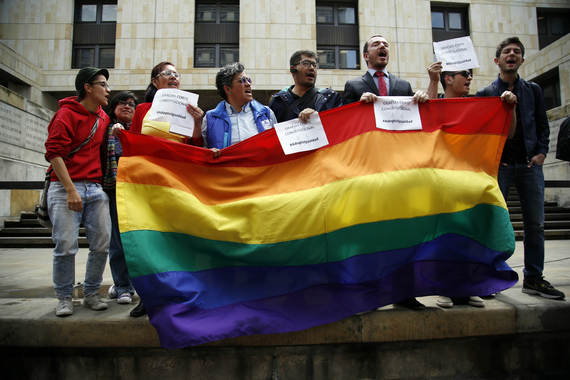
AP Fernando Vergara
Colombia
With a landmark decision in November 2015 allowing lesbian and gay individuals and couples to adopt children, momentum continues to grow for legal recognition and protection of LGBT people in Colombia. This year, advocates are awaiting a major court ruling that could lead to nationwide marriage equality. The Colombian Constitutional Court--the nation's highest court--ruled in 2011 that same-sex couples should be entitled to the same protections as different-sex couples, but that the Congress needed to pass legislation addressing the issue of marriage equality within two years. After Congress failed to do so, same-sex couples began applying for marriage licenses from local notaries across the country. Some couples were granted licenses but many others were denied. Ultimately, those who were refused brought the matter back before the Constitutional Court to decide. A decision is expected as early as this month.
Northern Ireland (U.K.)
In Northern Ireland, LGBT advocates are fighting to join the rest of the United Kingdom in achieving full legal recognition for same-sex couples. Last November, 53 lawmakers voted in favor of granting same-sex couples the right to marry, while 51 voted against. Unfortunately, the conservative Democratic Unionist Party, a Protestant party, which has the largest number of seats in Parliament, vetoed the motion. With marriage equality legislation stymied in the legislature, advocates are pursuing a legal strategy to prevail in the courts, and are hoping that the ultimate result of two cases could usher in marriage equality in 2016.
Taiwan
Taiwan, a country of more than 23 million people, could be set for a remarkable victory on marriage equality this year. Opposition leader Tsai Ing-wen of the liberal Democratic Progressive Party (DPP) won the presidential elections on January 16th as widely expected and her victory could help make Taiwan the first Asian country to give same-sex couples the right to marry. Tsai came out in support of marriage equality last October in a video she posted to her Facebook page during Taiwan Pride. Despite 71 percent of Taiwanese supporting marriage equality, same-sex marriage legislation efforts since 2003 have floundered and the latest bill, which has remained stalled in parliament since 2013, could finally move ahead.
Kyrgyzstan
Last June, the National Assembly of Kyrgyzstan gave preliminary approval to discriminatory anti-LGBT legislation that not only emulates Russia's anti-LGBT "propaganda law," but imposes even harsher sentences. If the bill passes a final vote in 2016 and President Almazbek Atambayev signs it into law, the day-to-day work of LGBT advocates could be criminalized. These brave activists already experience extreme violence, such as an attack last May at a celebration of International Day Against Homophobia and Transphobia and Biphobia (IDAHOT). A "foreign agents" bill, also modeled on Russia's, could be on the agenda for Kyrgyzstan's legislature during the first half of 2016.
Egypt
The Egyptian government's brutal crackdown on LGBT people in 2015--particularly on gay men and transgender women-- shows no signs of abating. A group of 11 allegedly LGBT Egyptians were arrested last September and are currently awaiting judgment on charges of debauchery. The ongoing crackdown is part of a calculated effort by President Abdel Fattah el-Sisi to establish his political legitimacy with a conservative Islamist opposition.
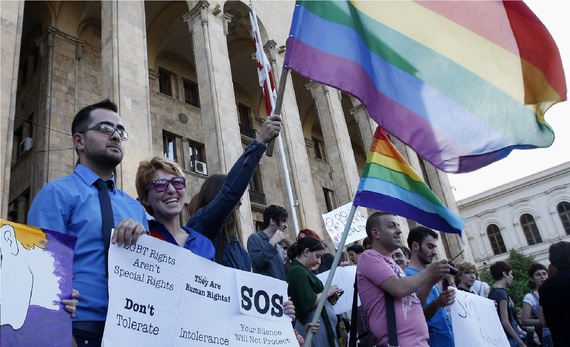
AP Shakh Aivazov
Georgia
The World Congress of Families (WCF) is set to host its 10th annual international conference in Tbilisi, Georgia in May. Designated an anti-LGBT hate group by the Southern Poverty Law Center, WCF
has been successful in promoting anti-LGBT laws and homophobia across the globe. WCF X will overlap with LGBT Georgians' celebration of IDAHOT, which was marred in 2013 by violence in the capital. While Georgia has made progress protecting LGBT citizens through inclusive national level non-discrimination and hate crime laws, advocates fear WCF's conference could intensify ongoing challenges facing LGBT Georgians in their fight for equality.

